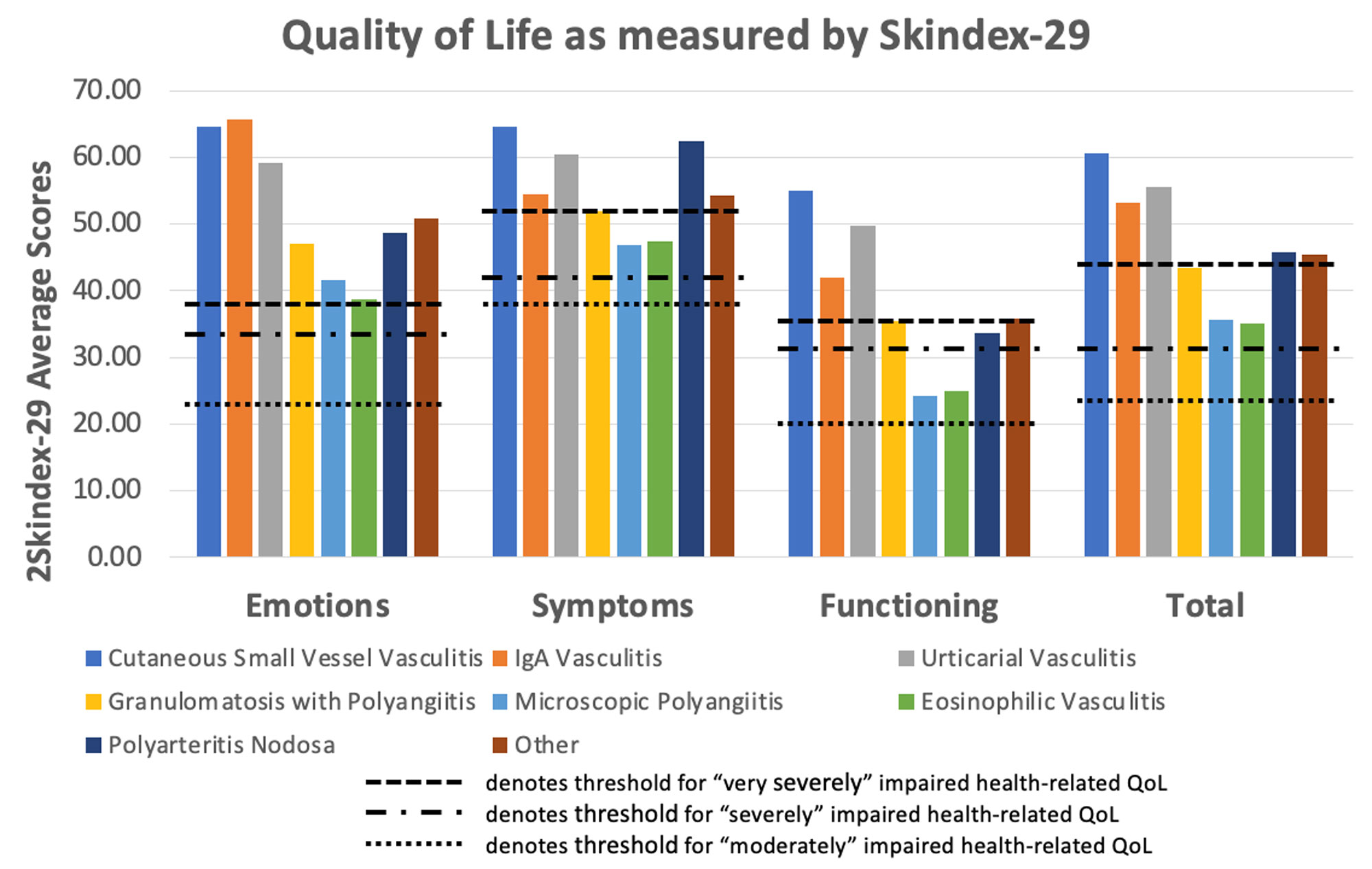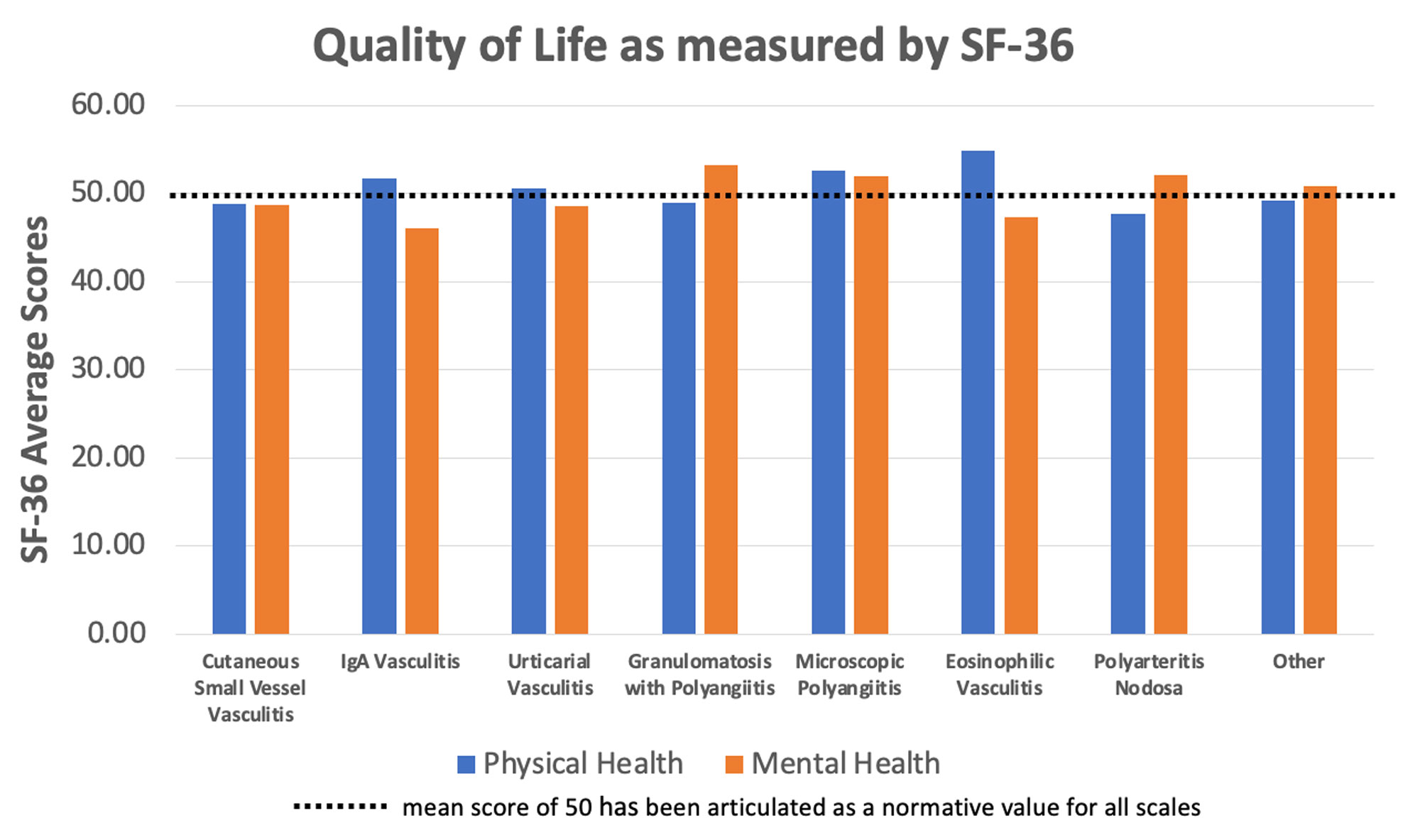Session Information
Date: Sunday, November 13, 2022
Title: Vasculitis – Non-ANCA-Associated and Related Disorders Poster II
Session Type: Poster Session C
Session Time: 1:00PM-3:00PM
Background/Purpose: Cutaneous manifestations of vasculitis can cause pruritus, pain, and ulceration, and their psychosocial impacts may be significant. However, the quality-of-life (QoL) impact of skin vasculitis has not been systematically evaluated. This study aimed to assess the QoL of patients with cutaneous manifestations of vasculitis and to determine potential factors affecting patients’ experiences.
Methods: Utilizing the Vasculitis Patient-Powered Research Network (VPPRN), and incorporating feedback from patient research partners, an online survey was disseminated to patients with cutaneous manifestations of vasculitis (all major types), including validated measures of skin-related QoL (Skindex-29) and general health and wellbeing (SF-36). Skindex-29 results were categorized using previously published methods, and SF-36 scores of 50 on a scale of 0-100 were considered “average.”
Results: A total of 234 responses were received. After eliminating duplicates and incomplete responses, 190 remained. Of these, 107 patients with any of several forms of vasculitis had experienced active skin lesions within the preceding four weeks and were included for analysis. The mean QoL impact of skin vasculitis was considered at least moderately impaired (and, frequently, very severely impaired) in every domain of the Skindex-29, including “symptoms,” “emotions,” “functioning,” and “overall” (Figure 1). QoL was below average in six out of the eight domains of the SF-36 health survey (Figure 2). QoL impact was greater with increasing disease severity. Analyzed by vasculitis type, cutaneous small vessel vasculitis (CSVV) had an impact on QoL which met or exceeded that of other vasculitis subtypes, as assessed by both the Skindex-29 and the SF-36. QoL impact was greatest for those with disease duration of less than 2 years.
Conclusion: Cutaneous manifestations of vasculitis are associated with diminished QoL across multiple domains, suggesting skin vasculitis has a significant impact on health, wellbeing, patient symptoms, and self-perception of health. These data may help clinicians be more aware of the impact of skin disease in vasculitis and may form the basis of a patient-reported outcome tool for measuring disease severity and response to treatment in clinical studies. Future work will evaluate changes in QoL resulting from successful management of cutaneous vasculitis.
To cite this abstract in AMA style:
Mann S, Hussain A, Dua A, Patrone A, Larson K, Merkel P, Micheletti R. Impact of Cutaneous Vasculitis on Health-Related Quality-of-Life [abstract]. Arthritis Rheumatol. 2022; 74 (suppl 9). https://acrabstracts.org/abstract/impact-of-cutaneous-vasculitis-on-health-related-quality-of-life/. Accessed .« Back to ACR Convergence 2022
ACR Meeting Abstracts - https://acrabstracts.org/abstract/impact-of-cutaneous-vasculitis-on-health-related-quality-of-life/


